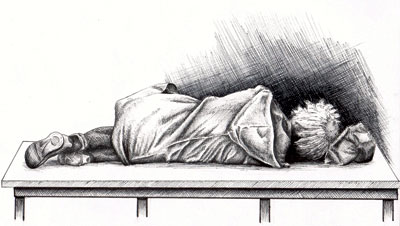All Nonfiction
- Bullying
- Books
- Academic
- Author Interviews
- Celebrity interviews
- College Articles
- College Essays
- Educator of the Year
- Heroes
- Interviews
- Memoir
- Personal Experience
- Sports
- Travel & Culture
All Opinions
- Bullying
- Current Events / Politics
- Discrimination
- Drugs / Alcohol / Smoking
- Entertainment / Celebrities
- Environment
- Love / Relationships
- Movies / Music / TV
- Pop Culture / Trends
- School / College
- Social Issues / Civics
- Spirituality / Religion
- Sports / Hobbies
All Hot Topics
- Bullying
- Community Service
- Environment
- Health
- Letters to the Editor
- Pride & Prejudice
- What Matters
- Back
Summer Guide
- Program Links
- Program Reviews
- Back
College Guide
- College Links
- College Reviews
- College Essays
- College Articles
- Back
Sleep Paralysis
All body movement is stopped, your eyes are wide open, every breath begins to shorten, and you realize this and start to move out of fear. You are having a sleep paralysis. Sleep Paralysis is when the human body is falling asleep or awakening from REM sleep and the body is immobile. During this phenomenon some have reported seeing hallucinations which may be due to the fact that your brain has not fully awaken from REM sleep. Allowing your brain to have the mentality that your body is still in a dream. There is a reasoning behind all of this, sleep paralysis is triggered by certain behaviors.
REM is the last of five stages of sleep. During REM sleep your brain undergoes many different activities and your eye movement increases. During the first stage of sleep you preparing to drift off into sleep and go through Alpha and Theta. Preparing to drift off into sleep. Then during your second stage of sleep which is about twenty minutes and your brain begins to create rhythmic brain waves and both your heart rate and body temperature begin to drop. During the Third and Fourth stages your body is in a very deep sleep. Your breathing begins to become more “even” and your muscle activity is very little. When your body is experiencing a sleep paralysis you don’t have the ability to move because your muscles are limited to any movement you make due to the fact that your body still has not come to the sense that you have awaken.
During your sleep your body switches between REM and NREM sleep. Usually its something that disrupts your sleep schedule that triggers this switch . There are many other things that might contribute to the reasoning behind why the sleep paralyses are occurring. Such as Anxiety disorders, Bipolar illness, Depression, Stress, Lack of sleep, etc can play a role in sleep paralysis attacks.
Your likelihood of getting a sleep paralysis are increased depending on your age, sleep patterns, family history, or even from sleep depriving yourself. It is more commonly found in teenagers and young adults. Its also more commonly found in people who do not get enough sleep or have an irregular sleep schedule.

Similar Articles
JOIN THE DISCUSSION
This article has 0 comments.
